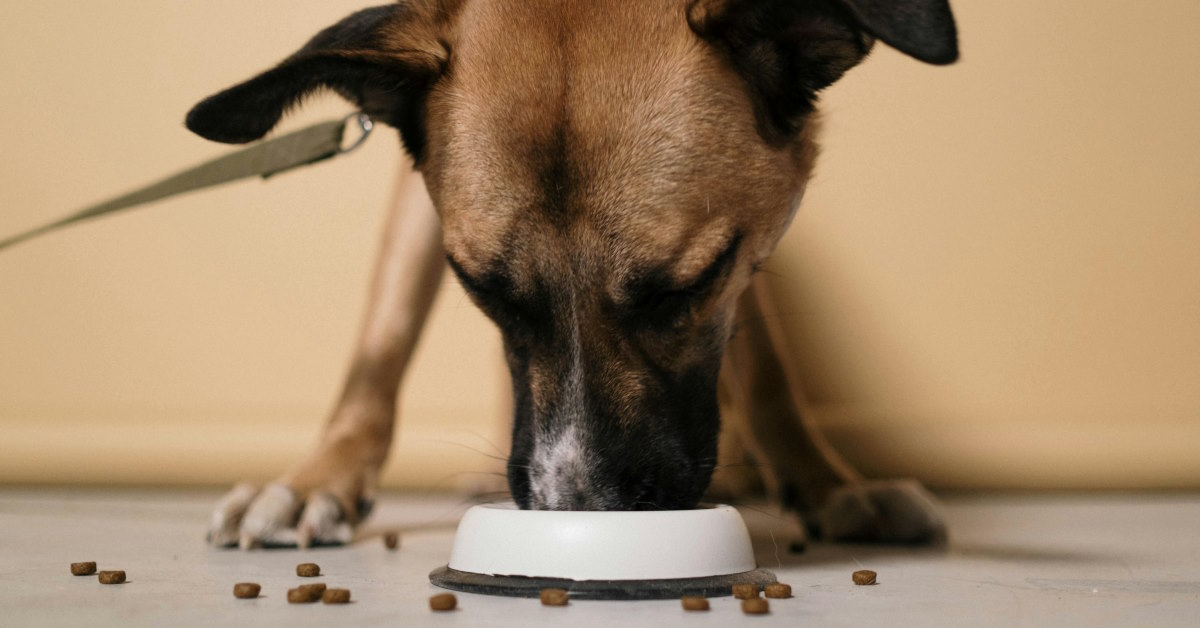Are Dogs Allowed To Eat Cat Food?

As a pet parent, you may have caught your dog sniffing around your cat's food bowl. You might wonder, "Is it okay for my dog to eat cat food?" It's a common question, especially for homes with both cats and dogs. While cat food might seem like a tasty treat for your dog, it's essential to know its potential effects on their health. Let's dig into why dogs and cats have different dietary needs and whether feeding your dog that can of tuna cat food is a good idea.
Why Is Cat Food Different from Dog Food?
Cats and dogs have unique nutritional needs, and their food is specially formulated to meet these requirements. Cats are obligate carnivores, meaning they need a meat-rich diet. Their food, including exceptional tuna cat food, contains higher protein and fat levels than most dog food. Dogs, on the other hand, are omnivores. They need a more balanced diet that includes meat, grains, vegetables, and fruits to stay healthy.

Is It Safe for Dogs to Eat Cat Food?
While a little nibble of cat food now and then won't harm your dog, it shouldn't become a habit. The high protein and fat content in cat food can be too much for a dog's digestive system. Regularly eating cat food could lead to stomach upset, weight gain, and even pancreatitis, a severe condition that affects the pancreas. So, while cat food might seem like a tempting treat for your dog, it's not the best choice for their long-term health.
What Happens If My Dog Eats Cat Food?
If your dog sneaks a taste of tuna cat food or any other special cat food, you might notice some mild symptoms like stomach upset or gas. However, if this behavior continues, more severe health issues could arise. Your dog might gain weight quickly due to the higher fat content in cat food. Over time, this can lead to obesity-related problems like joint pain and heart disease. It's also possible for your dog to develop nutritional imbalances because cat food lacks some essential nutrients that dogs need, like specific vitamins and fiber.

How to Prevent Your Dog from Eating Cat Food
Managing their meals can be tricky if you have both cats and dogs at home. Here are a few tips to keep your dog away from the cat food bowl:
- Feed Separately: Feed your cat and dog in different rooms. This helps avoid confusion and reduces the temptation for your dog to eat cat food.
- Use Raised Feeders: Place your cat's food bowl on a counter or elevated surface where your dog can't reach it. Most dogs can't jump or climb like cats can.
- Supervised Feeding: Watch over your pets during mealtime to ensure each one eats from their designated bowl.
What Should You Do If Your Dog Loves Cat Food?
Some dogs are naturally drawn to cat food due to its high protein content and pungent smell. If your dog seems obsessed with cat food, you should adjust their diet. Ensure your dog gets high-quality food that meets all their nutritional needs. Sometimes, dogs crave cat food because their food lacks flavor or nutrients. Consider trying out different types of dog food to see what your pet prefers.
In conclusion, while the occasional bite of cat food won't harm your dog, it's best not to make it a regular part of their diet. Dogs and cats have different nutritional needs, and feeding them the right food is vital to keeping them healthy. Consulting with your veterinarian is always a wise choice if you need clarification on what's best for your furry friends.
Remember, keeping your dog away from cat food is essential to caring for their health. Opt for specially formulated dog food to meet their needs rather than relying on tuna cat food or other exceptional food made for felines. Your pet's health is worth the effort!

